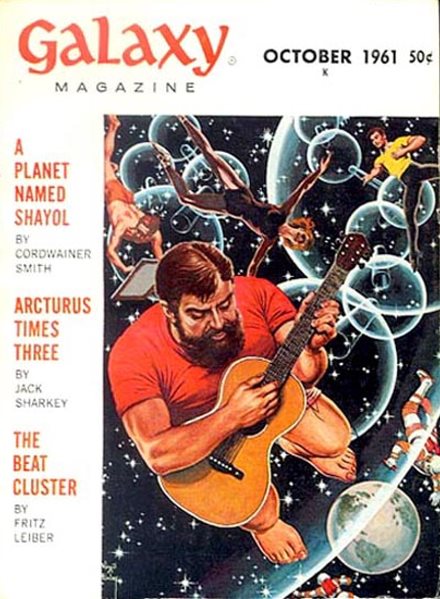[if you’re new to the Journey, read this to see what we’re all about!]

by Gideon Marcus
The Traveler family has now been on the island of Kaua'i (in the newest state of the Union, Hawai'i) for five days, and I can feel the shackles of the mainland loosening. We are staying in a vacant worker cottage on the Waimea Sugar Plantation, guests of one of the manager's, and it's just lovely. Timeless beauty surrounds us. There's no question but that this state is destined to be a tremendous tourist attraction some day – but I hope this island never loses its virgin charm.
It's hard to describe the relaxation that comes with visiting this sub-tropical paradise. In the main room of our three-room cottage, the Young Traveler plucks away at her ukelele, singing Elvis' recent Hawai'ian hit, I can't help falling in love with you, and then the apt Jamaican Farewell popularized by Belafonte not long ago. Last night, we were guests of the Gaylord family at their Kilohana estate. After a sumptuous meal of meticulously prepared fish and delectable desserts (including a half-coconut), we dallied in the Sitting Room as one of the family played Scott Joplin tunes on the piano.

Of course, even in this Westernmost bastion of America, modern civilization is encroaching. We flew into the new small but international airport at Lihue (and commerce is already relocating from its traditional center here at Waimea to that burgeoning mini-city). The grocery chain, Safeway, is building a supermarket on the island.
And then there are the relics of the Mainland we've brought with us in the form of the books packed in our suitcases. The Young Traveler has been devouring Dale Carnegie's classic, How to Win Friends and Influence People (Watch out World!), while I have just finished this month's Galaxy.
Its editor, Fred Pohl, has spilled much ink over the role of the science fiction writer. He insists that our job is not to predict the future, and indeed, we're pretty bad at such things, statistically speaking. Rather than saying, "This is what will happen," we really say, "This is what will happen if."
The timing is no coincidence. The February 1963 Galaxy is filled with "what will happen ifs," — have a look:
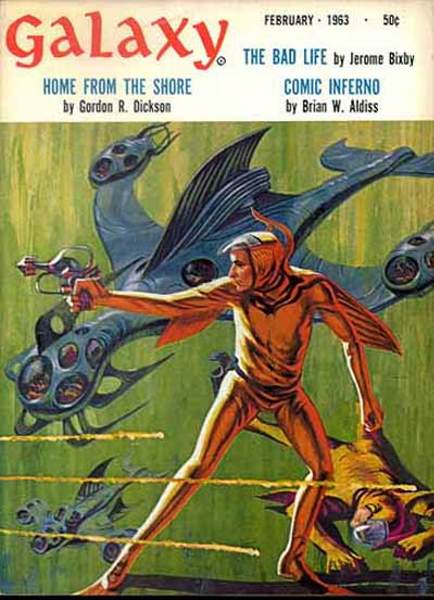
Home from the Shore, by Gordon R. Dickson
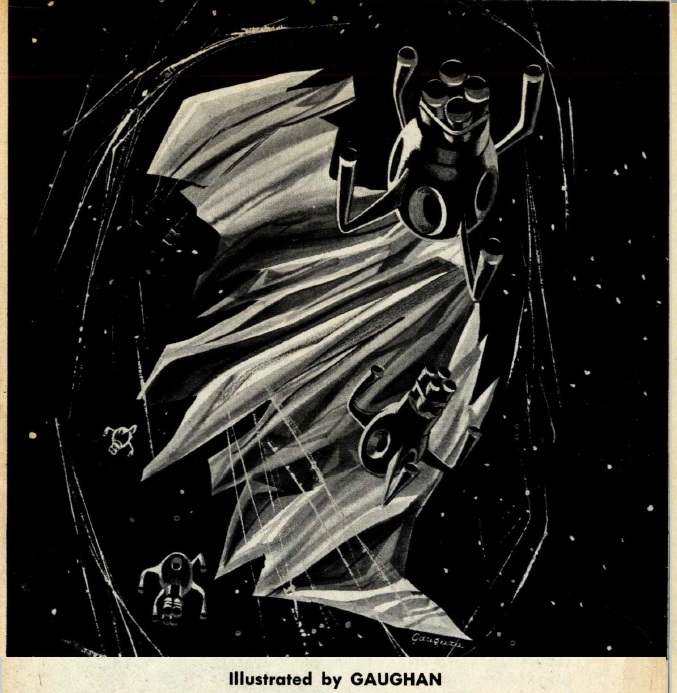
Dickson's story asks, "What will happen if the nascent trend of undersea living is carried to its logical conclusion?" The result is, as we've seen previously explored in The Underwater City, a nation of humans living underwater. Living in Castle-Homes and Small-Homes on the ocean floor, some six million people, enhanced by genetics and technology, thrive alongside their dolphin companions.
It is an uneasy existence, the Landers resenting the independence of their former brethren (who they'd hoped to use primarily as stock for space exploration). As Home from the Shore begins, one of the sea people's leaders, Johnny Joya is defecting from the astronaut corps to rejoin his people. It turns out that the precipitous action is the spark that provokes war between the Landers and the mermen. Willy-nilly, this fight will catapult the sea people to the next phase of their existence.
Dickson pens a vivid piece, but it feels more prologue than complete tale, and the details are a bit too oblique to follow in places. In particular, I'm never quite sure just how life underwater works or how it's sustainable. I found myself stalling at the beginning a number of times. I think Shore earns three stars, but just barely.
Think Blue, Count Two, by Cordwainer Smith
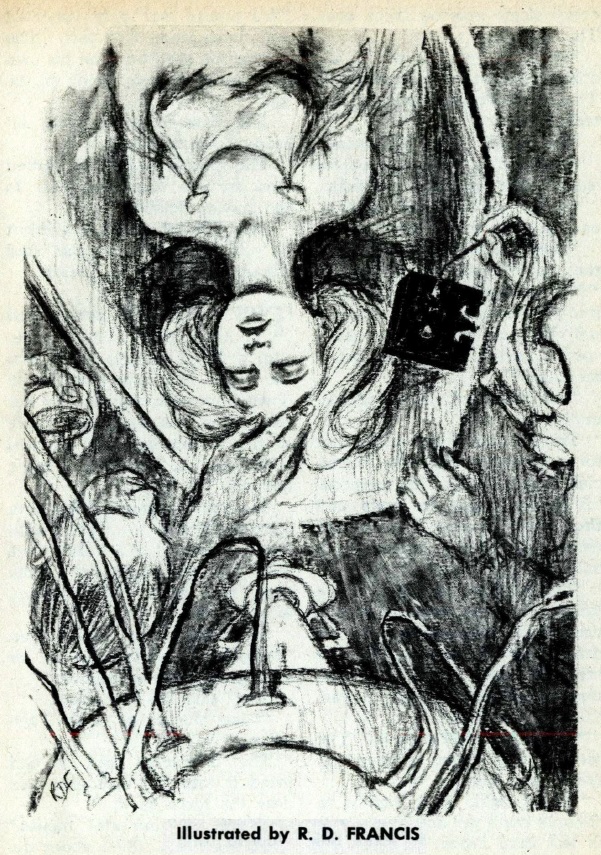
This latest tale of the "Instrumentality," Smith's unique far future, explores the ramifications of centuries-long space flight given an unchanging temperament for humans. How will we keep our sanity, our morality, when faced with the yawning vastness of space, divorced from the society that keeps us civilized.
Think Blue, Count Two is a sequel, of sorts, to The Lady who Sailed the Soul, which introduced us to the concept of interstellar sailing ships and deep frozen passengers. This latest edition stars an ingenue colonist, chosen solely for her beauty, and details how she manages the increasingly neurotic attentions of her two male co-passengers.
It's another beautiful Smith tale, but Think Blue is less about what the protagonist does but what happens around and to her. Riveting but somehow unsatisfying stuff. Four stars.
For Your Information: First Flight by Rocket Power, by Willy Ley

To project where we're going, one has to know where we've come from. This month's science department traces down the very first rocket powered human flight and then describes the important ones since. Three stars.
(Anyone want to lay odds on whether the Russians will beat Gordo Cooper to be the first person in space in 1963?)
Comic Inferno, by Brian W. Aldiss
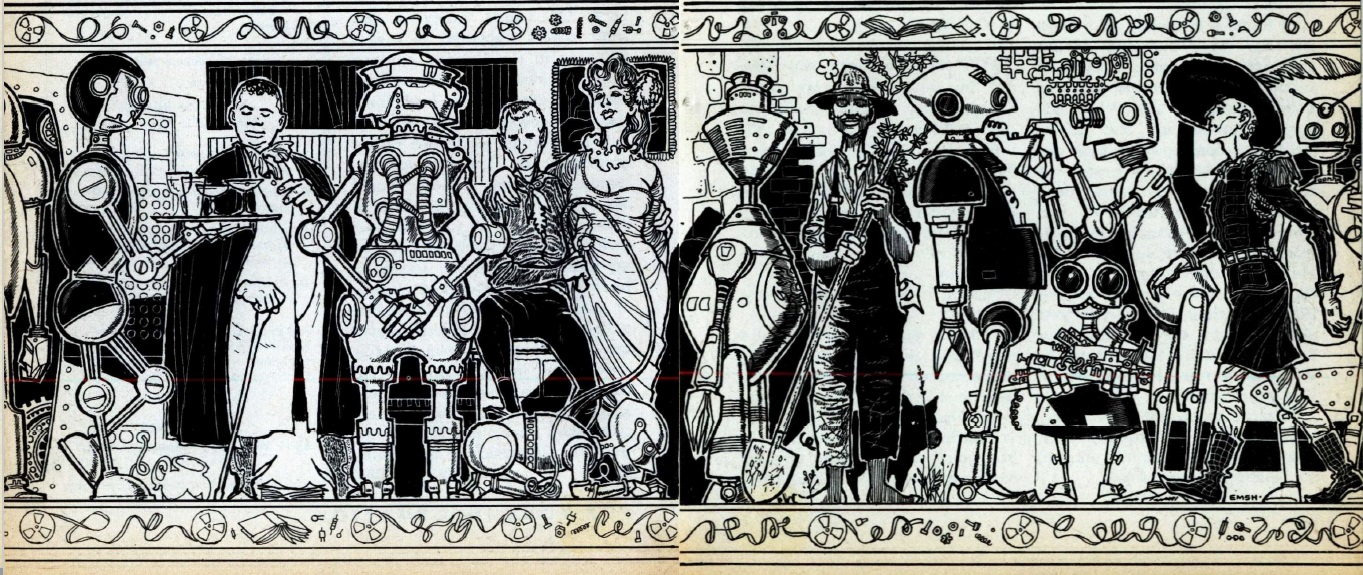
Aldiss makes a bold prediction in this story of robots and people: As life gets easy, our breeding instinct will wane, and a hundred years from now, the world will be a fraction as populated. Mechanical people will fill in the gaps, being our servants and our underclass. But what if the romen tire of their inferior position?
There are great concepts in here, but Comic Inferno is rather rough sledding, what with its Extremely British satirical style. Much like the Dickson, it takes time to get into, but in retrospect, the trip was rewarding. Three stars.
Pollony Undiverted, by Sydney J. Van Scyoc

Here is another journey into an indolent future, in which all needs are met save for the ones that matter most – those that give us emotional satisfaction. Van Scyoc gives us a tale from a feminine perspective that captures the frivolity of existence and the fleeting nature of happiness in a world made infinitely small by teleportation. Three stars.
Day of Truce, by Clifford D. Simak
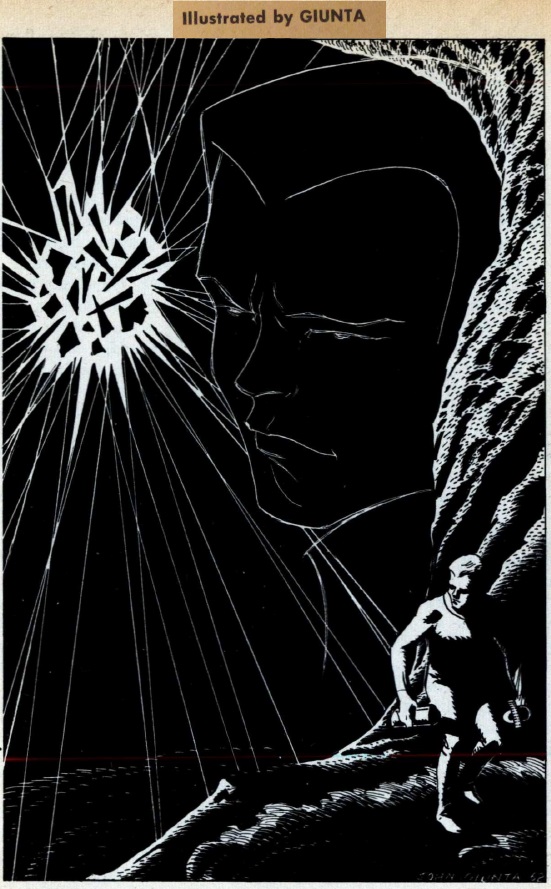
Did you just put up a fence to keep tykes from riding their bicycles and scooters on your property? Maybe a menacing "No Trespassing" sign? What if these are the first unplanned shots in an escalating war between the Homeowners and the Punks?
Simak writes a fun, barbed story about a battle deep in the course of the conflict at a time when a man's home is truly a castle, and the teenage delinquents are armed with time bombs and Molotov cocktails. Four stars.
The Bad Life, by Jerome Bixby
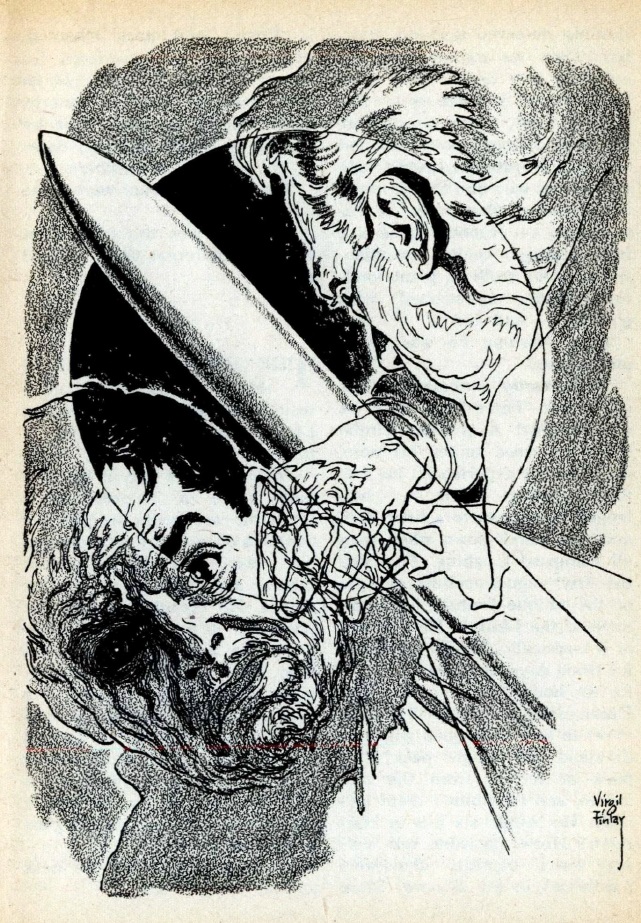
You may remember Bixby from his The Twilight Zone story, It's a Good Life. His latest story shares no similarities but for the titles and the overwhelming sense of feeling trapped in a hellish situation.
John Thorens is a do-gooder, a Hand of the Helping Hands dispatched to the Jovian artificial moon/penal colony called Limbo to bring solace to the criminals living there. The extrapolation in this piece is, "How would a first generation Australia in space treat a well-meaning vistor?"
Not well. An intellectual among boors, a civilized man among animals, Thorens is hounded and beaten to the point of insanity.
This is a brutal story, difficult to read, made compelling by Bixby's sheer "writerliness" (as one of my readers might put it). Not recommended for the easily disturbed, and perhaps Bixby overdoes the writing by 10%. But it'll sure stay with you. Three stars.
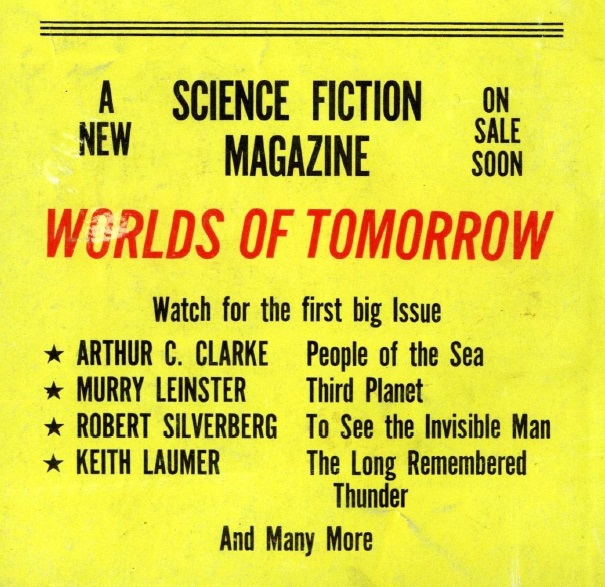
And that's that. A dense read, a hard read at times, but in many ways a rewarding one. None of the futures depicted are pleasant ones, but they offer valuable signposts of potholes to avoid on the path of progress.
Next up – John Boston and this month's Amazing!
[P.S. If you registered for WorldCon this year, please consider nominating Galactic Journey for the "Best Fanzine" Hugo. Check your mail for instructions…]













